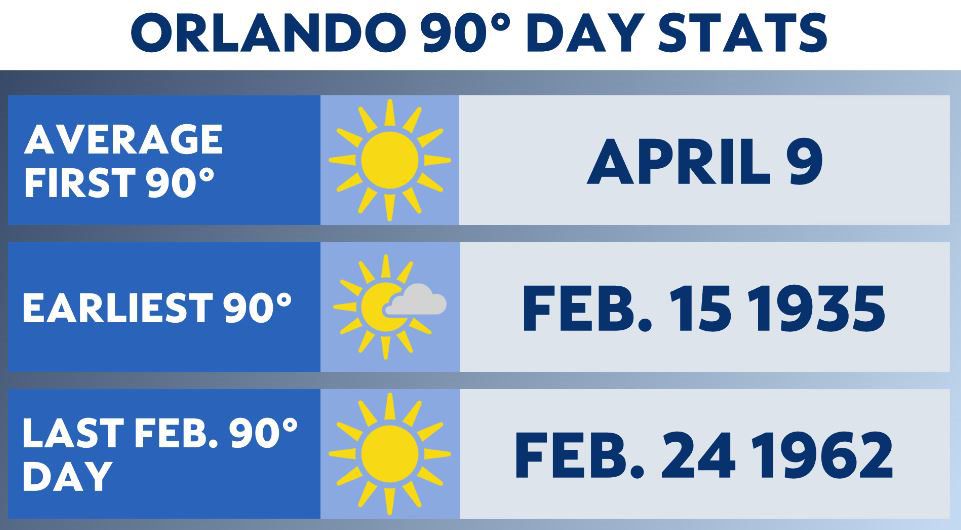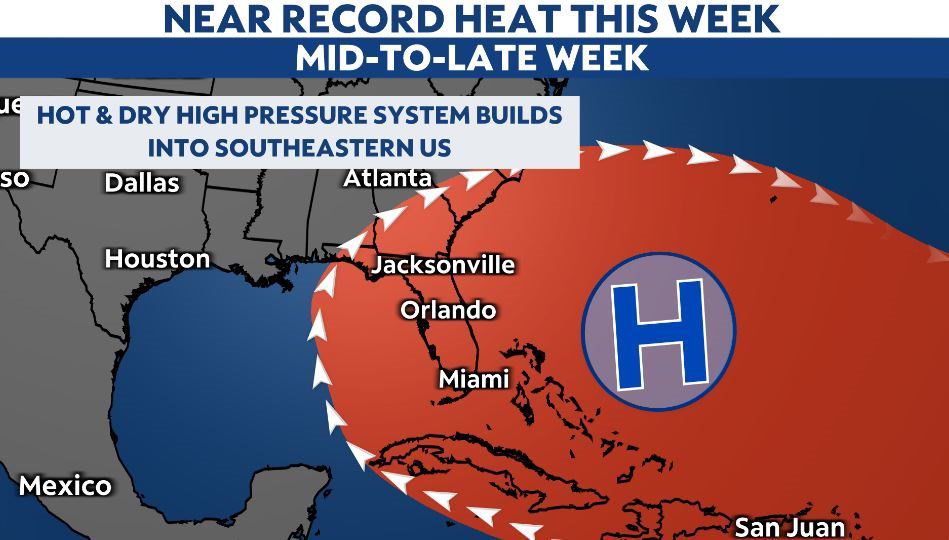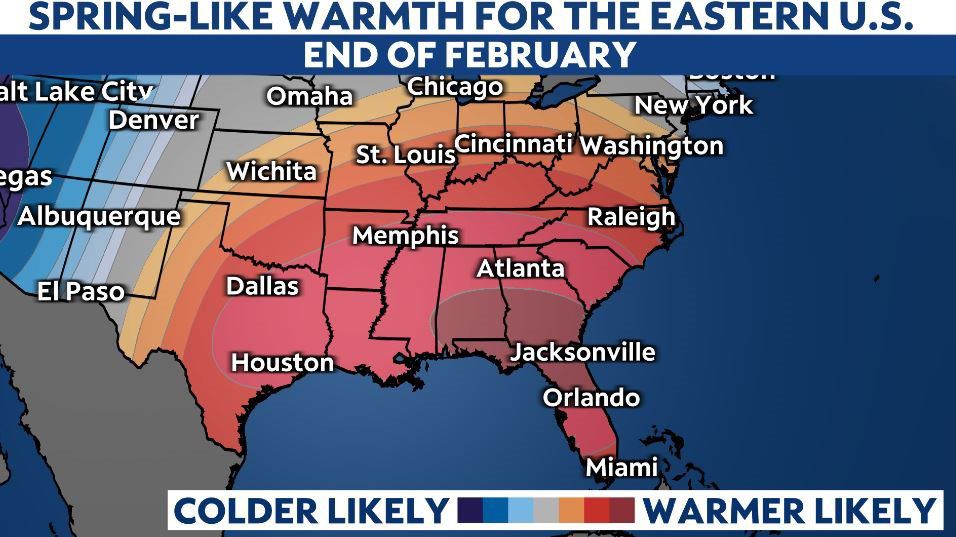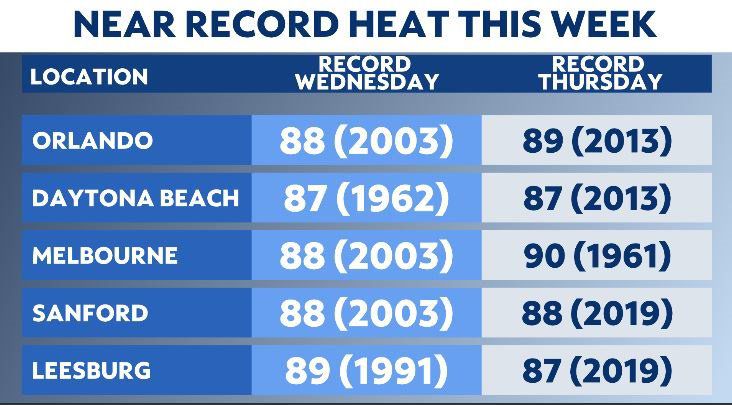Orlando has been close to hitting 90 degrees in February several times in recent years, but it has not officially happened since February 1962.
This could change in the second half of our week. We're forecasting highs to soar well into the 80s, and temperatures could come close to 90 degrees starting Wednesday through the weekend.
The last time the City Beautiful came close to hitting 90 degrees this early in a year was in 2020. On Feb. 13, 2020, the Orlando International Airport hit an official high of 89 degrees and almost shattered the record for the earliest 90-degree day in Orlando.

The earliest 90-degree ever recorded was in 1935. The temperature then hit 90 degrees on Feb. 15 that year. In all of record keeping, Orlando has only hit 90 degrees twice in February, in 1935 and 1962. Never has the temperature climbed above 90 degrees during this month.
The average first 90-degree day is April 9. Orlando hit the first 90 in March over the past three years.
The typical high for late February is around 76 to 77 degrees. By the end of this week, temperatures will be 10 to nearly 15 degrees warmer than average.
A big ridge of high pressure will dominate much of the eastern United States, sending our temperatures and much of the southeastern U.S. to near record warmth.

Late-week temperatures will be in the middle 80s along the coast and around 90 inland. Many cities across Central Florida will probably be close to tying or breaking records from Wednesday into the start of the weekend.
The ridge of high pressure will keep the near-record warmth locked through the end of February.

High pressure keeps the storm track well to our north, so if you’re hoping for rain, we finish February drier than average.

Our team of meteorologists dives deep into the science of weather and breaks down timely weather data and information. To view more weather and climate stories, check out our weather blogs section.



